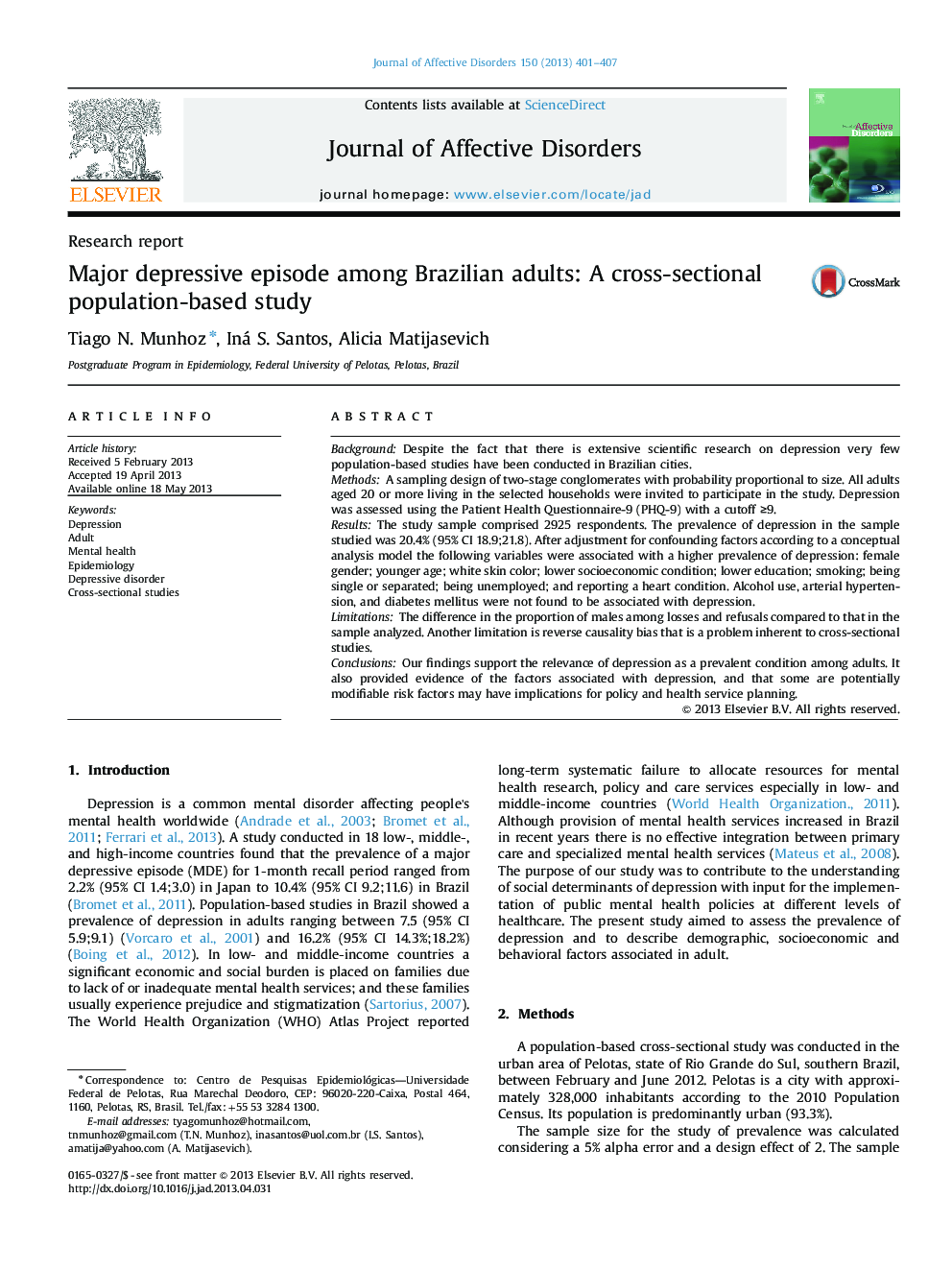| Article ID | Journal | Published Year | Pages | File Type |
|---|---|---|---|---|
| 6234263 | Journal of Affective Disorders | 2013 | 7 Pages |
BackgroundDespite the fact that there is extensive scientific research on depression very few population-based studies have been conducted in Brazilian cities.MethodsA sampling design of two-stage conglomerates with probability proportional to size. All adults aged 20 or more living in the selected households were invited to participate in the study. Depression was assessed using the Patient Health Questionnaire-9 (PHQ-9) with a cutoff â¥9.ResultsThe study sample comprised 2925 respondents. The prevalence of depression in the sample studied was 20.4% (95% CI 18.9;21.8). After adjustment for confounding factors according to a conceptual analysis model the following variables were associated with a higher prevalence of depression: female gender; younger age; white skin color; lower socioeconomic condition; lower education; smoking; being single or separated; being unemployed; and reporting a heart condition. Alcohol use, arterial hypertension, and diabetes mellitus were not found to be associated with depression.LimitationsThe difference in the proportion of males among losses and refusals compared to that in the sample analyzed. Another limitation is reverse causality bias that is a problem inherent to cross-sectional studies.ConclusionsOur findings support the relevance of depression as a prevalent condition among adults. It also provided evidence of the factors associated with depression, and that some are potentially modifiable risk factors may have implications for policy and health service planning.
